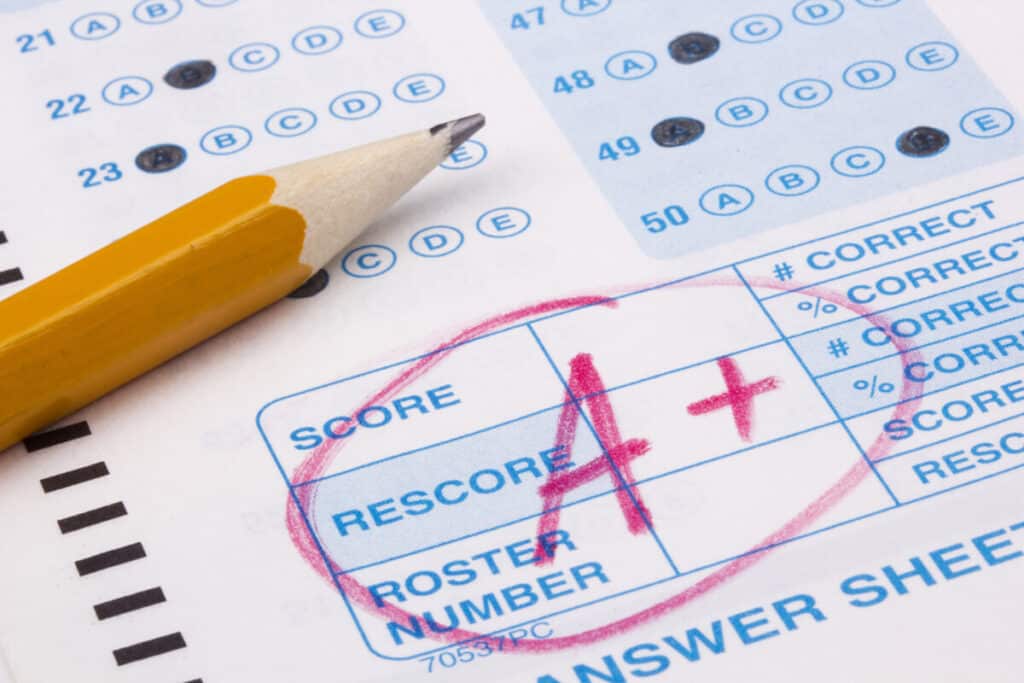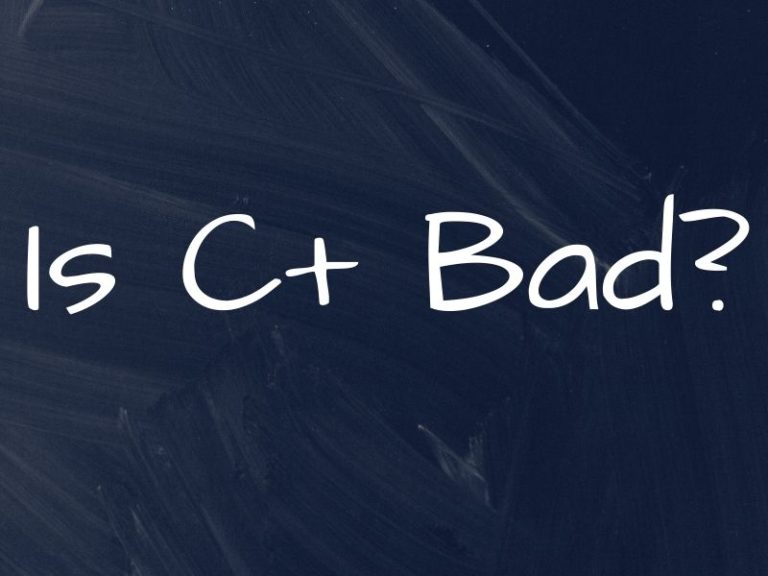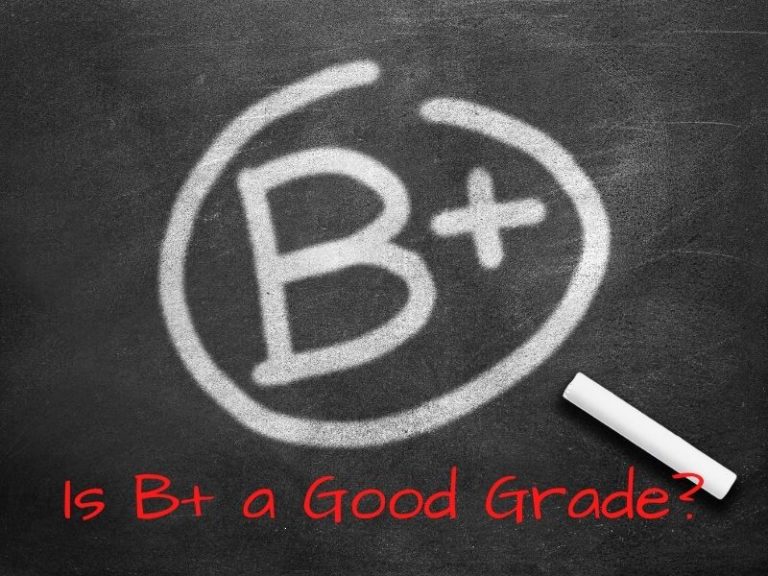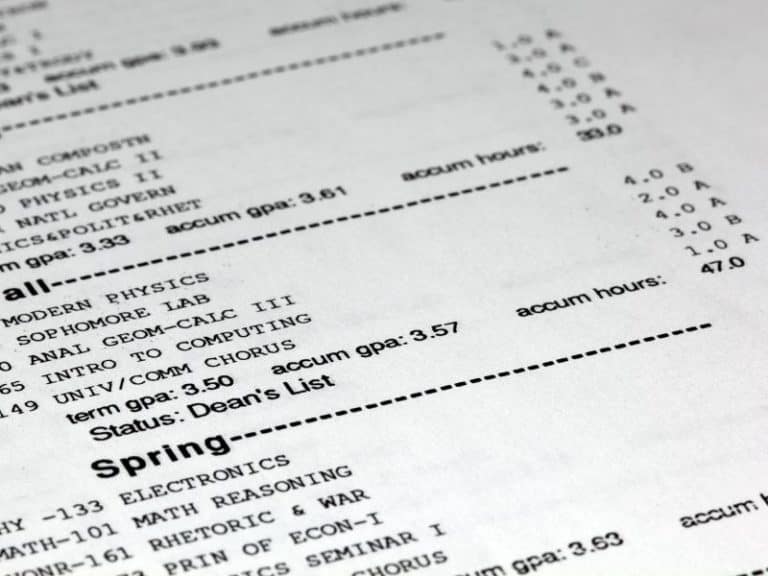The Link Between Unweighted GPA and Admission Chances is Rather Strong
Your high school GPA is the most significant of all traditional measures of academic success.
For many colleges and universities, including those with a holistic admissions policy where academic and non-academic factors are considerations, it’s the single most critical criterion in the review process.
The grade point average can come in two forms: unweighted and weighted.
In most instances, college admissions officers do not prefer one over the other.
Looking at both is a common practice, although they will consider whatever scale high schools use — some colleges recalculate GPAs to fit their standard, anyway,
So, what’s a good unweighted GPA?
A good unweighted GPA can vary from institution to institution.
Competitive colleges such as Ivy League schools prefer a perfect 4.0 or near-perfect GPA, although it’s not a requirement most of the time, while less-selective colleges are happy with a 3.0 or even 2.5 GPA.
Generally, the higher your unweighted GPA, the higher your chances of getting into more colleges.
There are various ways to raise your high school GPA as much as there are different steps you may take to increase your college admissions chances other than focusing on getting a good GPA.

Weighing the Differences Between Unweighted and Weighted GPAs
Numerous high schools of today produce unweighted and weighted GPAs.
Both reach college admissions officers.
It’s up to those tasked with evaluating college applications and making admissions decisions to decide whether they will look at the unweighted or the weighted GPA or both.
Knowing the main differences between GPA types can leave the admissions process less confusing for applicants.
Unweighted GPA Unlocked
Your unweighted GPA is the average of your high school course grades.
It comes on a 4.0 scale.
The unweighted GPA got its name because it disregards the difficulty level of your courses — everyone is equal, which means no one has more weight than the other.
Computing your unweighted GPA is just like computing the average of anything:
- Add your grades together
- Divide the sum by the number of your high school classes
Not all high school courses are the same.
Some are simply more challenging than the rest, especially AP courses, which are introductory college-level courses meant for high school teenagers who like to test themselves academically.
In computing the unweighted GPA, easy and hard courses get the same treatment.
Weighted GPA Worked Out
Like your unweighted GPA, your weighted GPA is the average of all your grades in all your high school courses.
However, it considers the difficulty level of each one.
Because AP courses are more challenging than standard high school classes, it isn’t surprising that they have more weight than the rest — simply put, an unweighted GPA rewards the extra effort you put into difficult courses.
That’s why it comes in a 5.0 scale.
Computing your weighted GPA is more complicated than computing your unweighted GPA:
- Get your unweighted GPA
- Multiply it by the number of your high school courses
- Add 0.5 for each standard high school course
- Add 1.0 for each AP course
- Divide the result by the number of your high school classes
Just because you took AP classes doesn’t mean you will have a higher weighted GPA.
Let’s suppose that High School Teen A took zero AP classes throughout their secondary school career and got a perfect grade for each standard high school course.
Then, he’d still have a higher weighted GPA than High School Teen B, who took AP classes but had very low grades in them as well as in their standard high school courses.
Unweighted GPA College Admissions Officers Prefer
What is a good unweighted GPA for one college may be more than good or less than good for another.
Different colleges have varying preferences in terms of academic profile.
Finding out which high school GPA or academic performance your first-choice college finds acceptable is the key to determining whether or not your chances of getting into it are good.
Related Article: Is B+ a Good Enough Grade for a College?
Knowing the Average GPA of the Incoming Class
In some instances, colleges and universities that tend to attract high-performing students brag about the high average GPA of their incoming freshmen class on their respective websites.
That’s a great marketing strategy — if we attract the best students, we must be the best!
Not all schools publish the average GPA of their recent admits on their sites.
Fortunately, you can still check out the high school GPAs of the accepted students by your preferred college by accessing its Common Data Set (CDS) and heading straight to section C12.
Section C12 provides the following information:
- Average high school GPA of all degree-seeking, first-time, first-year students who submitted GPA
- Percent of total first-time, first-year students who submitted high school GPA
Comparing your GPA with that of the incoming class is important to have an idea if yours is good enough.
Below are the average GPAs for the highest rankers on US News’ Best National Universities.
Please note that I excluded some high-ranking schools because their CDS reports do not reveal the average GPA of the most recently admitted students.
| Institution | Average GPA |
|---|---|
| Princeton University | 3.95 |
| Harvard University | 4.00 |
| Stanford University | 3.90 |
| UPenn | 3.90 |
| Johns Hopkins University | 3.93 |
| University of Chicago | 4.00 |
| UC Berkeley | 3.90 |
| UCLA | 3.93 |
| Vanderbilt University | 3.89 |
| UMich – Ann Arbor | 3.90 |
You may also look into the individual GPAs of most admits at your top-choice college — just go a section higher on its CDS (section C11) to examine their GPAs based on range.
Let’s take a look at the average unweighted GPA ranges of the incoming class at the same institutions:
| Institution | 4.0 | 3.75-3.99 | 3.50-3.74 | 3.25-3.49 | 3.00-3.24 | 2.50-2.99 | 2.0-2.49 | 1.0-1.99 | <1.00 |
|---|---|---|---|---|---|---|---|---|---|
| Princeton University | 68.41% | 25.40% | 3.70% | 1.75% | 0.67% | 0.00% | 0.07% | 0.00% | 0.00% |
| Harvard University | 74.30% | 20.47% | 4.04% | 0.51% | 0.34% | 0.34% | 0.00% | 0.00% | 0.00% |
| Stanford University | 75.20% | 15.50% | 5.80% | 2.90% | 0.70% | 0.00% | 0.00% | 0.00% | 0.00% |
| UPenn | 54.00% | 36.00% | 6.00% | 4.00% | 0.00% | 0.00% | 0.00% | 0.00% | 0.00% |
| Johns Hopkins University | 66.27% | 25.92% | 5.23% | 1.77% | 0.52% | 0.29% | 0.00% | 0.00% | 0.00% |
| University of Chicago | 62.45% | 24.54% | 9.41% | 2.43% | 0.81% | 0.15% | 0.00% | 0.00% | 0.22% |
| UC Berkeley | 38.80% | 51.80% | 8.00% | 1.00% | 0.40% | 0.10% | 0.00% | 0.00% | 0.00% |
| UCLA | 59.10% | 34.00% | 4.90% | 1.60% | 0.30% | 0.10% | 0.00% | 0.00% | 0.00% |
| Vanderbilt University | 40.60% | 45.30% | 9.90% | 2.40% | 0.90% | 0.90% | 0.00% | 0.00% | 0.00% |
| UMich – Ann Arbor | 38.00% | 54.40% | 6.40% | 0.80% | 0.20% | 0.20% | 0.00% | 0.00% | 0.00% |
Related Article: What Makes College Good a Good Fit
No Minimum GPA: For More Applicants and Diversity
Some colleges tell applicants outrightly they want a particular unweighted GPA.
But then some want to get everyone guessing.
Well, in some situations, certain institutions of higher education do not publish a minimum GPA requirement on their websites because they probably welcome high school GPAs in all shapes and sizes.
One of the most common reasons is they don’t want to discourage some students from applying.
Usually, colleges with no GPA requirement review applications holistically.
They believe their campus communities could use members with particular talents, skills, interests, or work experience besides simply having a specific unweighted GPA.
It could also be because they are after creating a more diverse student body.
However, it doesn’t mean you are guaranteed an acceptance letter even with low high school grades — your application should have something phenomenal that can make up for a not-so-impressive GPA.
Should You Apply With a GPA Lower Than Average?
The average GPA of the incoming class gives you a better understanding of what sort of students get into the college of your choosing based solely on this academic criterion.
Having a higher GPA means your chances of getting in are high.
Meanwhile, a lower GPA means your chances are lower.
However, always remember that a college that reviews applications holistically considers many things other than the GPA, meaning there’s hope provided that other components of your Common App or Coalition App look great.
What to Do If Your GPA isn’t High Enough
Taking AP classes and getting a high grade on each one is a great way to substantially boost your weighted GPA.
It can help slightly increase your unweighted grade point average, too.
This strategy, of course, is useless if the college admissions cycle is just around the corner — with AP classes usually taking one academic year to complete, you have no time.
Fortunately, a holistic review process can help you shine even with a not-so-stellar GPA.
Read Also: Can I Get Into A Good School Without APs or honors?
The following are some suggestions on how you can improve your college application if it’s too late to ace those projects and examinations to have a good unweighted GPA:
- Obtain leadership and volunteering skills. Many college admissions officers like students who exhibit the ability to lead and inspire change, and that’s why you should participate meaningfully in extracurriculars that allow you to polish your leadership skills and give back to the community.
- Show you are serious about attending. Some institutions consider demonstrated interest in the review process, and doing a campus tour, attending a college fair and webinar sessions, opening emails, and interacting with the school on social media may help boost your admissions chances.
- Prove you’ve done your research. You can demonstrate your interest in a college and creativity and writing skills, too, by writing supplemental essays centering on the institution’s academic program and campus culture — don’t forget to talk about what you can add to the college community.
- Apply early. Although early decision and early action applicants tend to be competitive students, having amazing non-academic college application components may help you get in — applying earlier than most other college-bound teens is also a form of demonstrated interest.
Disclaimer: The views and opinions expressed in this article are those of the authors and do not necessarily represent those of the College Reality Check.





